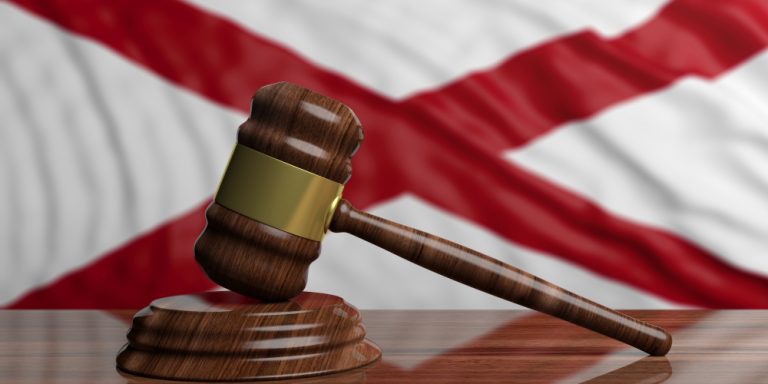Is There Coverage Under A Bankrupt Defendant's Liability Policy Where A Self-Insured Retention Has Not Been, And Will Not Be, Satisfied?
Is There Coverage Under A Bankrupt Defendant's Liability Policy Where A Self-Insured Retention Has Not Been, And Will Not Be, Satisfied?
Increasingly in today’s economy, Florida attorneys are finding themselves handling litigation for or against parties which are bankrupt, or which file for bankruptcy protection during the pendency of the litigation. It has become fairly well settled that the protection afforded a debtor in bankruptcy does not eliminate the liability of that debtor’s liability insurer to provide insurance benefits otherwise due under the policy. As a result, attorneys for plaintiffs seeking relief from bankrupt debtors are routinely granted relief from the bankruptcy automatic stay to continue to litigate against the bankrupt debtors in civil litigation with recovery limited to the extent of available liability insurance proceeds, effectively making the bankrupt debtor a nominal defendant in the ongoing litigation.
Whether it is a worthwhile endeavor to seek relief from the bankruptcy court to pursue a judgment in the civil courts depends upon whether the bankrupt defendant’s liability insurance policy provides any coverage from which a judgment could be satisfied. An important factor to consider in making this determination is whether the policy requires satisfaction of a self-insured retention (SIR).
Similar to a deductible, an SIR serves as a first tier of insurance coverage funded by the policy holder which often must be exhausted before coverage under the insurance policy kicks in.[1] In essence, insureds choose to keep insurance premiums lower by self-insuring up to a certain amount, and cover the excess above that amount with insurance.[2] Because the SIR is satisfied out of the insured’s own pocket, its satisfaction by an insured debtor would deplete the assets of the debtor’s bankruptcy estate. For this reason, bankruptcy orders granting relief from the automatic stay to pursue a debtor’s liability insurance coverage routinely provide that the debtor may not be compelled to satisfy any deductible or SIR. This is significant because, depending upon how the insurance policy is written, there may not be available coverage to pursue if the SIR has not been satisfied. And since the insured debtor will not be satisfying it, pursuit of a judgment against the debtor in civil court could be a fruitless endeavor.[3]
Whether or not a liability policy provides coverage where an SIR has not been satisfied depends upon the language of the policy. Depending upon the policy, coverage may be triggered as soon as a claim is made, or may not be triggered until the SIR is satisfied. Generally, the language in the policy must be very clear that there is no coverage unless and until the SIR is exhausted. Where the policy is not crystal clear that the SIR must be exhausted prior to any duty arising on the part of the insurer, courts are likely to find that the policy provides coverage either for amounts above the SIR, even though the SIR wasn’t actually paid, or for the entire judgment. This in essence means that either plaintiff pays the SIR, and the insurer pays the remainder of the judgment, or the insurer pays the entire judgment. If the latter occurs, the insurer is left with a right to submit a claim in the bankruptcy for reimbursement of the SIR.[4]
For instance, in In re OES Environmental, Inc.[5], the relevant policy provision provided as follows:
Retention: The Retention Amount stated in item 4 [SIR] of the declarations shall be borne by the Insured and shall not be insured. It shall include damages and claims expense, whether or not the damages are paid.[6]
The court found that this language did not provide with adequate clarity that there would be no coverage at all under the policy until the SIR was satisfied, simply because it placed the burden of paying the retained amount on the insured.[7] The court suggested that use of a word such as “exhausted” rather than “borne by” might make the provision sufficiently clear to make complete satisfaction of the SIR a prerequisite to any coverage.[8]
On the other hand, in In re Apache Products, Co.[9], the court was held that the policy language at issue which explicitly stated that the SIR must be exhausted before any duty to defend arose under the policy was sufficiently clear.[10] Interestingly, the same Florida bankruptcy judge decided both OEM Environmental and Apache Products.[11]
Although this is an evolving legal issue, it is important for any attorney contemplating pursuing liability insurance proceeds from a bankrupt defendant, as well as attorneys representing such debtors, to take steps to determine what the actual language of the insurance policy at issue says regarding self-insured retentions.
[1] In re OES Environmental, Inc., 319 B.R. 266 (Bankr. M.D. Fla. 2004) (applying New York law).
[2] Id.
[3] If there are no insurance proceeds to pursue, the claimant may still assert a claim in the debtor’s bankruptcy proceedings as an unsecured creditor. Oftentimes, attorneys unfamiliar with the bankruptcy court accept agreements with bankruptcy trustees and/or the debtors’ attorneys whereby they agree to waive any claim in the bankruptcy in exchange for stipulation to the stay being lifted. However, it is not necessary to do this in order to get relief from the stay, and could eliminate the only remaining avenue to some recovery in the event there is no coverage available under the debtor’s liability policy.
[4] See, e.g., In re Grace Indus., Inc., 341 B.R. 399, 402 (E.D. N.Y. 2006).
[5] 319 B.R. 266 (Bankr. M.D. Fla. 2004).
[6] Id. at 268.
[7] Id.
[8] Id.
[9] 311 B.R. 288 (M.D. Fla. 2004) (applying Alabama law).
[10] 311 B.R. at 288.
[11] Although the court in OEM Environmental was decided under New York law, and Apache Products applied Alabama law, the law applied in both cases to the interpretations of the insurance contracts really made no difference as the court made it clear that there was little precedent on the issue from anywhere. See OEM, supra at 269 (distinguishing T.Y. Lin Int’l v. Hyundai Marine & Fire Ins. Co., 1997 WL 703778 at *3 (Bankr. N.D. Cal. 1997) (which, like the court in Apache, held that a policy that explicitly said the SIR must be exhausted did not impose upon the insurer a duty to defend unless and until the SIR was fully paid by the insured debtor).







